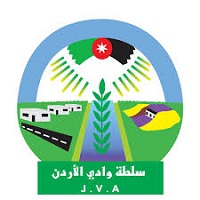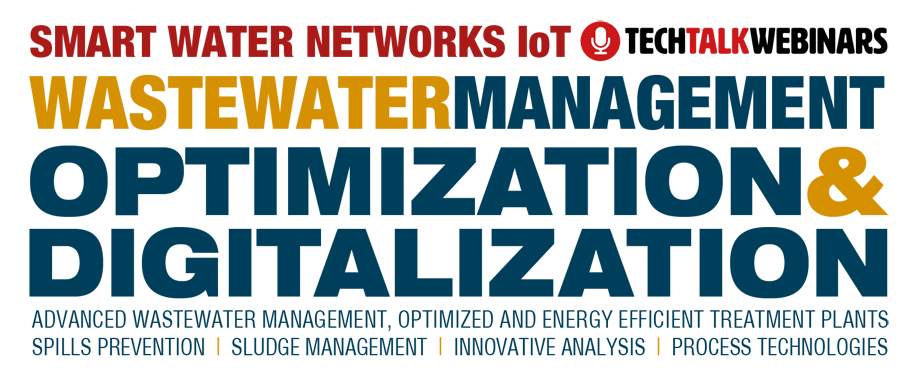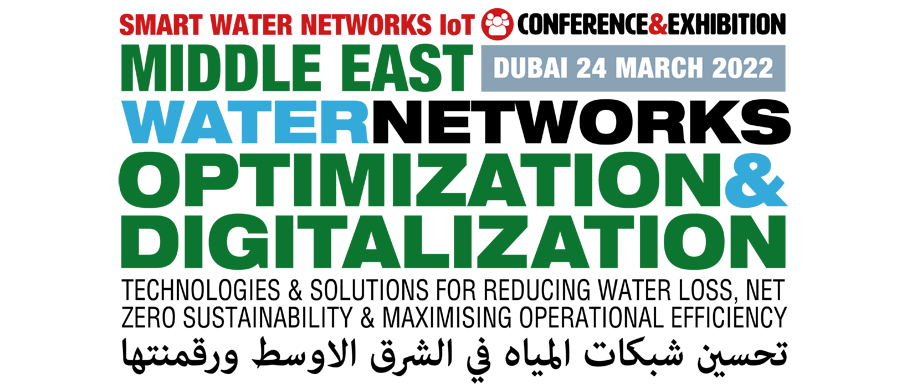8:40am Invited Chair 
Welcome Introduction, Conference Chair
Reviewing The UAE Water Security 2036 Strategy
Exploring the benefits of harnessing disruptive technologies such as IoT, Machine Learning and AI to meet key targets in the 2036 strategy

9:00am
Addressing Key Challenges, How To Meet Targets And Exploring Solutions For Ongoing Water Security
-
The speed and efficiency of the response to covid19 has varied greatly depending on each utility’s degree of technological maturity prior to the crisis: Analysing the effects of Covid19-Pandemic on utility development in the UAE and how utilities successfully meet the growing demands for water, having navigated through lockdown
-
What are the key challenges now affecting water security and how to harness new technologies and solutions in creating a sustainable future with access to clean drinking water for all
-
Exploring the benefits of harnessing disruptive technologies such as IoT, Machine Learning and AI
-
Discussing the current challenges and impacts of utilising IoT to digitalise existing water networks
-
How to effectively scale digital transformation company wide and meet the expectations of the ever-growing consumer
9:20am 

Greater Control of Quality Data: Processing Data At The Edge
Hashem Alnaser, Secretary General Assistant for Planning and Regional Water, Jordan Valley Authority
To reduce overall network costs and speed data processing, intelligence should be embedded at the point where it’s collected, which can allow for different types of automatic processes across the system. Utilities can better achieve real-time data analysis and program the devices or infrastructure to have set policies so that they conduct specific actions based on the data output. This is essential for remote pieces of infrastructure and devices that help with preventive maintenance so that issues can be caught as early as possible and actions taken. This type of automation can deliver several benefits for utilities with larger footprints. It also allows for the collection of in-depth insights for continued infrastructure improvements and for expanding infrastructure to new areas.
-
How to deploy edge applications correctly; Reducing data close to the edge to avoid overrunning communication system’s capabilities and incurring unnecessary costs.
-
Leveraging edge analytics to improve operational efficiencies and analytical insight from smart sensors into action with real time processing.
-
Creating a shared data ecosystem using IoT edge tools through an open-source architecture, reducing the need for immediate cloud connectivity and enabling faster data processing through offline devices.
-
Using data and insight to influence water policy, regulation, and operations
-
Service innovation, greater efficiency, and more rational real-time implementation
9:40am
Leak Detection & Repair, Addressing Ageing Infrastructure With Innovative & Disruptive Technologies
-
Optimising Leak detection
-
Strategies for managing and reducing water leakage across the network
-
Latest leak detection systems to meet regulations and water leakage targets
-
Integrating smart water technologies into existing water infrastructure
-
Identifying suitable technologies for greater efficiency, lower costs and optimal allocation of water
10:00am
How Can The Water Sector Benefit From The Digital Twin?
-
How Digital twins to predict future performance issues & identify future failures
-
How to create an end-to-end solution to put one screen on the water infrastructure, IoT data telemetry and AI Analysis
-
Learn how to track water consumption, detect anomalies, pinpoint high-return rehabilitation activities and make data driven decisions on adapting to water stress
-
Automative leak isolation with digital twin
10:20am Network Break Sponsor Presentation
Smart Cities & Municipalities: Achieving Scalable Data Collection
-
How to successfully combine sensor readings with weather stations, satellite data, irrigation systems and other sensors to achieve a full circle approach to water management
-
With new sensors coming into the market; how to choose the right solution and scalable approach
10:35am
Morning Refreshments & Networking
11:00am
Procuring Perfection
Exploring the optimum methods and strategies to procure the right solution for your organisation’s needs. It will weigh the benefits and challenges of replacing outdated legacy systems, it will also assess the role of the supplier in the smart water eco system.
-
Navigating frameworks and procurement processes- How involved do you need to be in your solution outsourcing?
-
Working with Suppliers- Streamlining the negotiation process and driving a more collaborative partnerships with vendors
-
Performing due diligence, supplier evaluation and appraisal to minimise risk when using a third-party supplier
11:20pm 

Middle East Smart Irrigation: Smart Farming, Smart Cities & Automated Irrigation
Christoph Kayser, Programme Manager/Lead – Portable Water And Automated Irrigation, Abu Dhabi Distribution Company
-
How to provide an assured, continuous supply of water, which the right type of Automated Irrigation System
-
How to achieve scalable data collection
-
Optimizing irrigation for both agricultural and city landscape management
-
Learn how to achieve scalable data and real time insights with fully automated IoT systems
-
Integrating soil moisture data for water management
-
General vision and aims of ADDC for Water Management : Meeting the Abu Dhabi 2030 by utilising modern technologies
11:40pm
Cost-Efficient Non-Invasive Metering Solutions
-
Measurement technology to monitor the flow and temperature of drinking water
-
Combining smart metering and acoustic leak detection
-
Digitalization in pipe networks, from leak detection to network monitoring
12:00pm Panel Discussion 
Desalination: Combatting the environmental impacts of RO to meet carbon zero initiatives
Experts From The Worlds Largest Desalination Plants
(Invited Panel Chair)
Leon Awerbunch Past President of International Desalination Association (IDA)
. Ras Al Khair, Saudi Arabia: 1,036,00m3/day
. Rabigh 3 Desalination Project –Saudi Arabia (ACWA Power) 600,000 m3/day
. Taweela, UAE: 090,200 m3/day
. Shuaiba 3, Saudi Arabia – 880,000 m3/day
. Jubail Water and Power Company (JWAP), Saudi Arabia – 800,000 m3/day
. Umm Al Quwain (UAQ), UAE – 682,900 m3/day
. DEWA Station M, Dubai – 636,000m3/day
The continued desire to reduce cost has caused a technology shift in desalination, moving away from the traditional thermal-driven technologies of multi-stage flash (MSF) and multi-effect distillation (MED); towards electrically-driven process of reverse osmosis (RO). RO uses several times less energy than MSF and MED, which means lower costs and lower emissions
-
Re-thinking technologies that are expensive and energy-intensive
-
Exploring alternatives in addition to desalination, including reusing more treated wastewater
-
Deciding whether desalination makes sense depends on considering any other alternatives
-
Combatting the environmental impacts of RO to meet carbon zero initiatives
-
Selecting suitable equipment for it energy efficiency and introducing recovery systems that can enable a reduction of over all consumption
-
Integrating tools to simulate the operation of the desalination plant to test and configure automatic control systems for faster commissioning
1:20pm
Cybersecurity- Managing A Growing Risk
Addressing cybersecurity budgets and why we are not investing enough in security in the water utilities sector. Water Sector Coordinating Council’s “Cybersecurity 2021 State of the Industry” survey found “38% of systems allocate less than 1% of budget to IT cybersecurity.” Understanding the importance of implementing solid policies and practice for resilience and risk mitigation.
-
Creating a cybersecurity roadmap to establish clear goals for an emergency response plan.
-
Continuous risk assessments to stay abreast of new cyber security challenges.
-
Tailor your security strategies toward risk reduction and cybersecurity resilience instead of attempting to eliminate all threats- Think Budget.
-
Investing in employee training- improving organisational resiliency.
1:40pm
The Road To Worldwide Water Sustainability:
Driving Innovation In Water Resilience Early Warning Systems.
Many utilities perceive their technologies narrowly—where engineers use engineering tools, operators use operational tools, and so on. But by opening those technologies up to each other through a digital twin, each part of the utility can get better insight than they would within their individual silos.
-
Examining the latest digital advancements which support sustainable and resilient water structure.
-
Creating a digital twin for your water system – Examining best practice for integration of virtual engineering models with city scale reality models and GIS data.
-
Utilising operational data from SCADA systems, sensors, and meters and integrating this with hydraulic models to create a streamline, real-time model that harnesses actionable insights to predict performance and optimise risk- based planning.
2:00pm
Access To Water And Sanitation for All – A ‘How To’ In Meeting And Succeeding Sustainable Development Goals
In an ever-changing world where climate effect is making a bigger impact than ever on water security, this session explores new consumption trending and the impact of localisation and self-efficiency. It will showcase the benefits of harnessing new, disruptive technologies to achieve water related ‘Sustainability Development Goals’ (SDGs) and to create a sustainable green future for water projects.
-
How to achieve SDGs- Exploring pathways and different technological solutions to accelerate the implementation of water-related Sustainable Development Goals.
-
Driving sustainable green infrastructure- Keeping pace with emerging, cost effective and scalable water harvesting solutions.
-
Government Intervention- Introducing Task Force on Climate-related Financial Disclosures as a mandatory reporting standard for big business.
-
New consumption trends and the impact of localisation and self-efficiency
2:20pm
Panel Session:
DEVOPS/AGILE/
OPERATIONAL
A session dedicated to C-Suite Executives leading operational change throughout their utility companies. Exploring how to cost effectively streamline development and operational processes with the implementation of agile. They will additionally evaluate the primary methods of restructuring work culture to create heightened innovation and collaboration between teams.
-
Transforming outdated operational processes with the adoption of Agile and DevOps- Examining the key processes of continuous integration, delivery, testing and inspection and considering the right automation tools for the job.
-
Leading a modern operational change- Designing your own DevOps Roadmap to encourage workforce collaboration, break down rigid silos and promote collective team goals and incentives.
-
Investment Starts at Home- Upskilling your workforce with the latest training to navigate their role through the digital transformation.
-
Exploring modular integration within legacy infrastructure and the best methods for upgrading legacy systems to meet current business requirements.
3:10pm
Drought Readiness: Prevention, Prediction And Preparation
“According to the World Bank, the MENA region is expected to have the greatest economic loss from climate-related water scarcity, estimated at 6–14 per cent of GDP by 2050.”
-
Examining state-of-the-art satellite technology to develop drought-monitoring and early-warning systems.
-
Identifying country-specific vulnerabilities to drought; and supporting the development of mitigation policies and responses
-
Promoting interdisciplinary collaboration between teams at every stage of the warning process which will lead to greater accuracy of information which can be incorporated into risk management programs
3:30pm
Environmentally Friendly Desalination
The continued desire to reduce costs has caused a technology shift in desalination. Moving away from the traditional thermally-driven technologies of multistage flash (MSF) and multi-effect distillation (MED) towards electrically-driven process of reverse osmosis (RO). RO uses several times less energy than MSF and MED, which means lower costs and lower emissions.
-
Combatting the environmental impacts of RO
-
Jebel Ali Sea Water Reverse Osmosis (SWRO) desalination plant. The plant is now producing at a 100% capacity, which is equivalent to producing 182 million litres of potable water per day.
-
Driving sustainability: Dubai’s water management strategy to help save $3.9bln which focuses on enhancing water resources, rationalizing water consumption, and using cutting-edge technologies and innovative solutions to reduce water consumption by % by 2030.
The utility is also working on an aquifer storage and recovery project to store excess water in aquifers and pump that back into the water network when needed.
3:50pm
Decentralized Rainwater Management Systems
Exploring the varieties of rainwater storage systems and acknowledging them as a key component for water management which can lead to decentralizing water supplies and encouraging localised food security.
-
Implementing rainwater storage systems, as a water supply option that reduces vulnerability in times of flooding.
-
Decentralizing rainwater management systems to minimize reliance on upstream management to reduce the water supply service expenditure across scattered households.
-
Reducing Wastage- Using the right technologies to support rainwater catchment systems to allow communities to directly manage water supply according to local demand
4:10pm
Data Analysis, Sensors And Communications In Leak Detection
Sensors will play a key role in improving performance in the quest to minimize the effort, time and money spent looking for leaks. To achieve the best possible management of water resource, new leak detection technological methods that go beyond sectorization should be consolidated as a first step to reducing the size of inspection areas and enhancing water loss reduction processes. Technological advances in sensors and communications will be key to using water as efficiently as possible.
4:30pm
Smart Irrigation And Remote Metering In Agriculture
One of the key developments in the farming industry will come from improvements in the hydraulic and operational efficiency of the network thanks to the installation of sensors and of remote meters for farmers. Furthermore, smart irrigation will become more widespread thanks to advances in remote sensing and sensor technology.
In this area, technological solutions and automatic irrigation rescheduling will optimize water consumption and enhance environmental sustainability by reducing the industry’s water and carbon footprints
4:50pm
Using 5G To Manage Water Service Infrastructures
5G will make its mark in terms of communications in all fields and applications. Thanks to its low latency and its ability to connect millions of devices in a small area, managers will experience increased capacity in autonomous infrastructure operation, remote driving and the use of real-time data.
In short, data-based management, fast data collection and smart data transformation will help to create more independent, sustainable processes in the water industry. Globally, remote control of all processes will continue to be a priority, from infrastructure operation to the management of work orders for field operators.
5:10pm
Implementing Smart, Autonomous Processes In Drinking Water And Waste Water Treatment Plants
-
Data-based management, fast data collection and smart data transformation will be the driving force behind more independent, sustainable processes.
5:30pm
Remote, Digital Water Management
-
Understanding the range of solutions, technologies and options available
5:50pm
Chairs Closing Remarks
We look to the future of the Middle East Water Industry and securing a sustainable future. What are the plans for 2023 and strategic priorities on a government level? Stressing the importance of working together and transboundary cooperation between countries to minimise water conflict issues and policies such as the UAE donation of Dh3 billion for water development assistance to water stressed countries in need.
Three new water desalination plants will be opening in 2023 Abu Dhabi, Dubai, and Umm Al Quwain with a combined capacity of 420 million imperial gallons per day (MIGD) that will raise the country’s total water capacity to 1,590 MIGD when completed by 2023. As we near 2023 what progress has been made design and construction of these plants and how will it affect the UAE population and society once complete, what can other countries learn from these developments?
6:10pm
Evening Buffet, Entertainment & Networking Reception

7:30pm
Event Close






